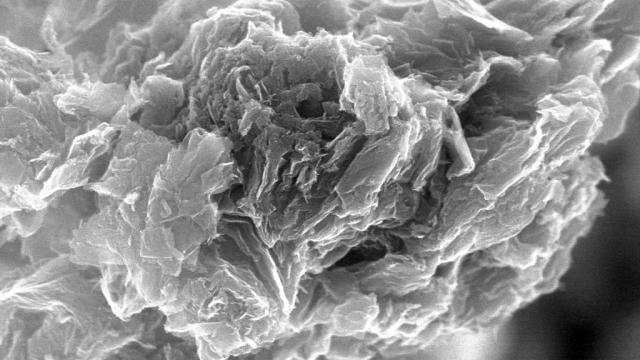Hundreds of millions of litres of radioactive water remain sitting around the site of the 2011 Fukushima Daiichi nuclear disaster in Japan. But scientists can’t simply dump the liquid into the ocean, and if it continues sitting around, it could seep into the soil.
C-seal-F. Image: Kazan Federal University
A team of scientists from Rice University in Texas and Kazan University in Russia have a clever idea to get the radioactive strontium and cesium out of the water — a cheap material called oxidatively modified carbon (OMC). They think that an OMC filtration system could purify the water enough to safely pour it into the ocean and prevent any further contamination.
You’ve probably heard of carbon or charcoal filtration systems, but those filters don’t work well on the heavy metals in radioactive water. The same team of scientists have in the past reported that a material called graphene oxide could filter out one common radioactive element, strontium, but not another one, cesium. Plus, graphene oxide is pretty expensive. That brought the researchers to OMC, which is 10 times cheaper than graphene oxide and can be produced from a commercial carbon coke source called C-seal-F, or from “shungite”, a naturally occurring rock in Northwestern Russia.
The scientists created OMC filters from both sources by treating them with acids, giving the materials oxygen-rich surfaces for the metal contaminants to adhere to. They passed water spiked with strontium, cesium and other heavy metals through the OMC preparations, and found that 800mg of the C-seal-F OMC stripped 83 per cent of the cesium and 68 per cent of the strontium from 100mL of water. The shungite OMC sucked up 70 per cent of the cesium and 47 per cent of the strontium, according to the paper published last week in the journal Carbon, for all your carbon needs.
This paper was only a proof of concept, plus the scientists tested their filters on non-radioactive versions of strontium and cesium. We’ve reached out to the authors to ask whether using radioactive isotopes would change the results and how long until we might see these filters in action.
[Carbon via Rice University]
